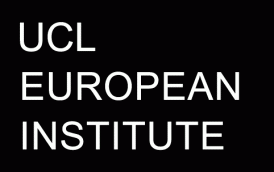Gendering Migration: Women’s Writing, Displacement and Melancholy: Lecture on Selected Aspects of Polish Contemporary Literature
by
Urszula Chowaniec
(Language and Culture, UCL SSEES)
Discussant: Ursula Phillips (Honorary Research Associate of UCL SSEES)
AtSt. Antony’s College at University of Oxford lecture within the series of talks within the theme of
Who are the Poles and where’s Poland? Ethnic, civic, and cultural identities and frontiers in modern Poland
Address:
European Studies Centre, 70 Woodstock Rd, Oxford OX2 6HR
ABSTRACT:
“What will be born, what can be born in Poland, in the souls of a ruined and brutalized people when one day (in the future) the new order that has stifled the old one disappears and nothing follows” – asked Witold Gombrowicz about Poland after communism in his Diary of 1953. This “nothing,” sounding both pessimistic and intriguing, is a time of transition, revolution and transformation. From nothing many things can be created. Indeed, the year of 1989 can be seen as giving Polish prose an unique opportunity to create new characters, new stories that would not conform to any political or ideological standards and expectations. Also, the year of 2004, the beginning of a new Europe with apparently no borders, brought a new notion of freedom, especially for the new migrating writers. Yet, there are fears, disappointments and failures that accompanied this time of hope. How did the post-1989 political and social changes influenced Polish literature? Does gender matter in evaluating these impacts and diagnosing the literary phenomena? If so – how? How did women writing respond to the time of change? And finally, is there anything more to melancholy than the mourning after unspecified loss?
The lecture will focus on the contemporary, post-1989 Polish literature and it will discuss the new understanding of emigration and migration in literary studies, the traces/inscriptions on migration in the texts written by women as well as the gendered aspects of migration and the “power” of melancholy.




Recent Comments